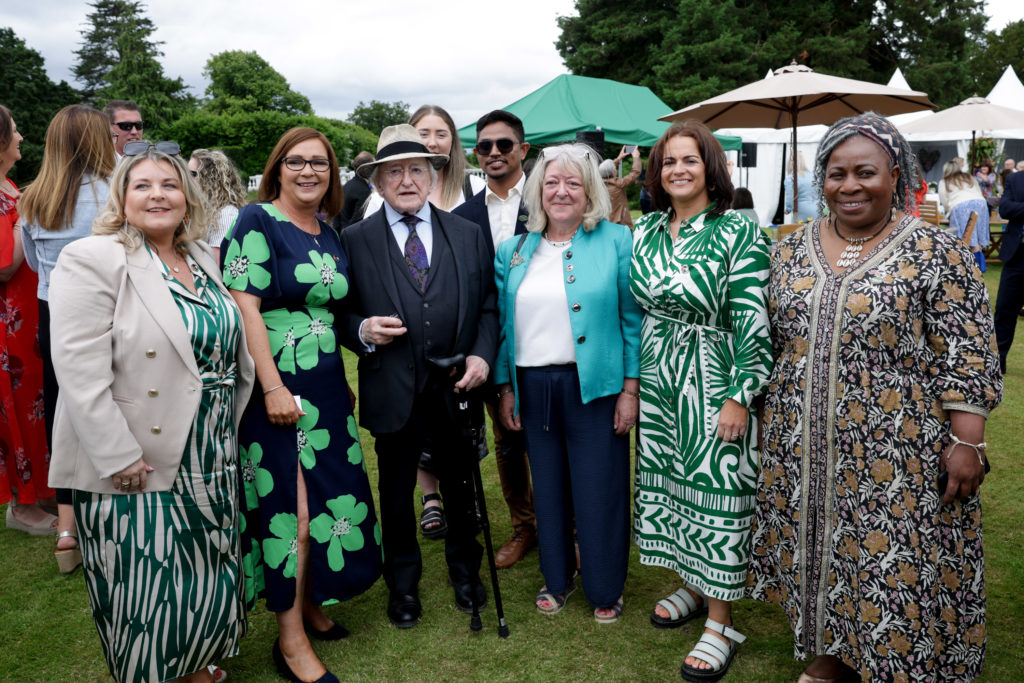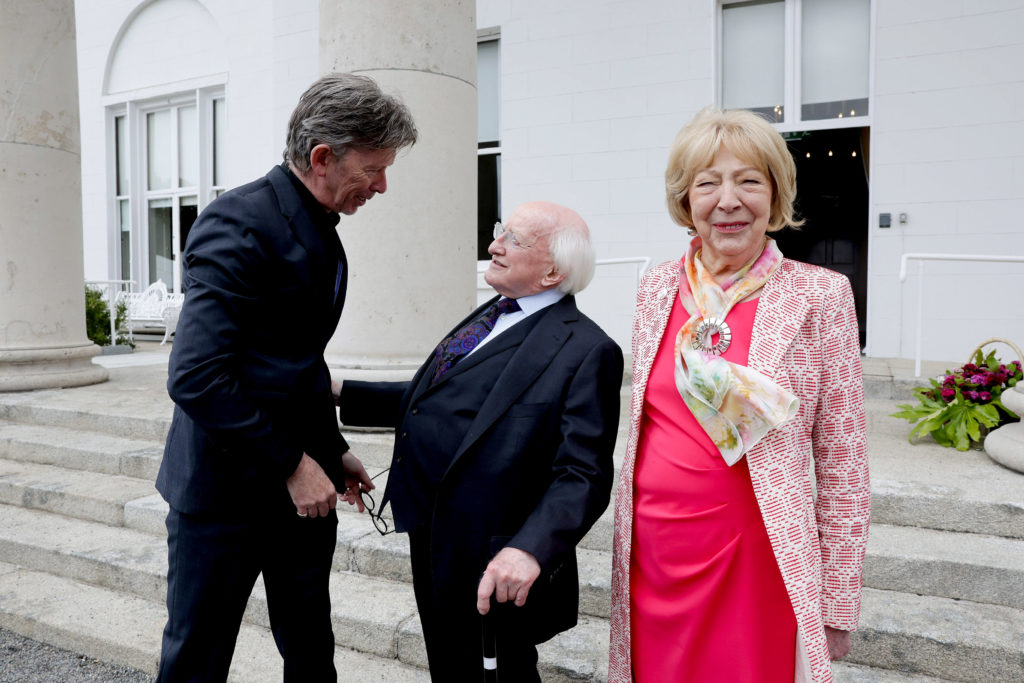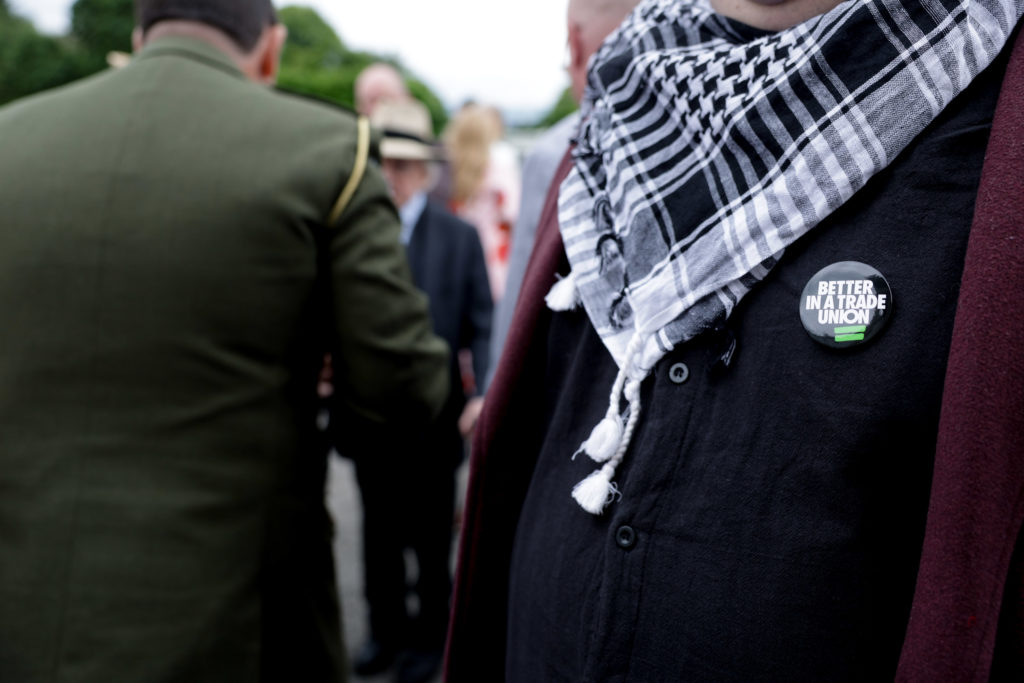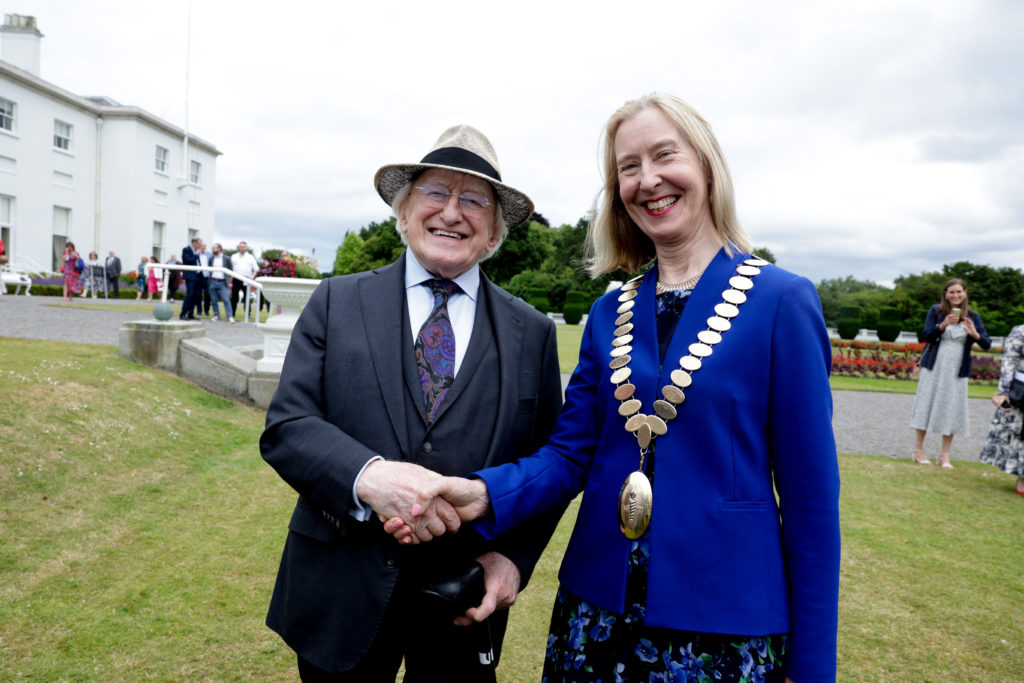PRESIDENT Michael D Higgins is a lifelong trade unionist.
Born in Limerick city and raised in County Clare, the 83-year-old, who has been president of Ireland since 2011, was a factory worker and a clerk before becoming the first in his family to move into higher education.
He studied at University College Galway, the University of Manchester in England and Indiana University in the US before entering politics and has been a “proud” trade unionist throughout this life, he said this week.
“I’ve been a proud trade unionist since my teens and all through my adult life,” President Higgins told union members and leaders who gathered at his home, Áras an Uachtaráin, which has been the home of all Irish presidents since 1938, over the weekend.
 President Higgins hosted trade union leaders and members at Áras an Uachtaráin
President Higgins hosted trade union leaders and members at Áras an UachtaráinHe reminded them that in 1969 he founded the teaching section of the Workers’ Union of Ireland, which later became part of SIPTU.
“As I reflect on the Trade Union movement during my lifetime, I am struck by how clearly certain aspects of it have retained a special place in my memories,” he added.
“The image I recover is of banners, bands, marches, speeches in the public space – great speeches – which people would debate on the way home, some of the phrases of which they would make their own.
“The trade union tradition is a proud tradition,” he said.
“One thinks of how it makes its way into the hearts of those who were struggling for freedom in their different ways.
“There are so many songs on the theme of “I’m off to join the union”.
 President Higgins hosted the event with wife Sabina
President Higgins hosted the event with wife Sabina“Many early trade union organisers, such as labour activists like Swedish-American Joe Hill, realised the importance of culture, of time spent together, of music shared, of songs in whose rendering workers competed for excellence.
“This is true of the docks, of the mines, of the factories. It is part of the symbolic life of a collective that shared values of universalism.
“It is the very antithesis of extreme individualism.”
Among the guests at the president’s garden party, which he hosted with wife Sabina, was President of the Irish Congress of Trade Unions, Justin McCamphill, the General-Secretary of Forsa, Kevin Callinan and the General-Secretary of SIPTU, Joe Cunningham.
Mr Higgins was keen to welcome them all and celebrate their work, but he had a clear message for them too.
He used the opportunity to press home the need for unions to play a “leadership role” in building the Ireland of tomorrow.
“We are meeting at a historic moment in the role of trade unions,” he said.
 The president called on the nation's trade unions to help build the Ireland of tomorrow
The president called on the nation's trade unions to help build the Ireland of tomorrow“Trade Unions, with a long and glorious history of fighting for and providing protection for workers, are now in a position of new circumstances.
“I believe there is an opportunity for unions to play a leadership-defining role in the coming years as we build the future of our economy and our society.”
He explained: “Rather than simply reacting to the agendas of others, unions are now sitting down as equals with CEOs and with Government.
“The expertise which they are bringing to these discussions is being acknowledged and unions have shown that they are skilful partners with the intellectual resources and analytical capacity that is more than equal of that in any other part of the economy.”
 President Higgins describes himself as a 'lifelong trade unionist'
President Higgins describes himself as a 'lifelong trade unionist'He added: “At this defining moment, the challenge facing you all with our fullest support is, as representatives of workers in every sector of our society, to give continuing leadership in these new circumstances and to play a central role in defining the Ireland of the coming decades as one where all workers, and people from all backgrounds, can flourish.
“In order to seize this opportunity, and to build the recruitment that is necessary, it is crucial that your engagement with the public is a proactive one seizing opportunities and helping to foster, for example, an expansion in economic literacy and rights-based thinking. “

